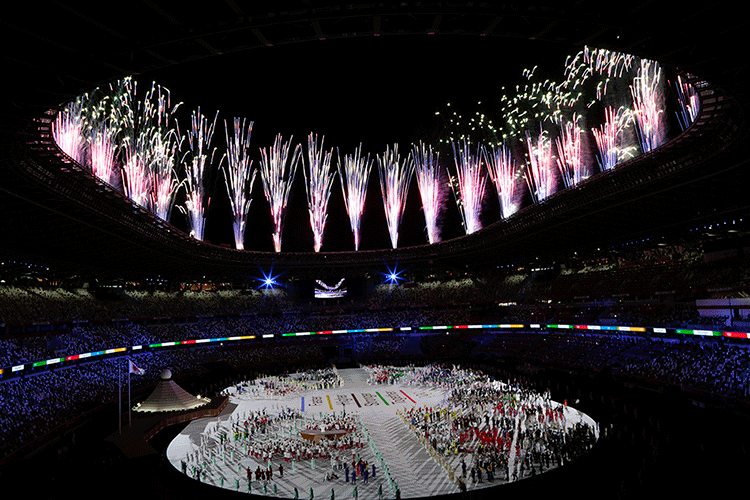Olympic Games go on because there is too much money at stake
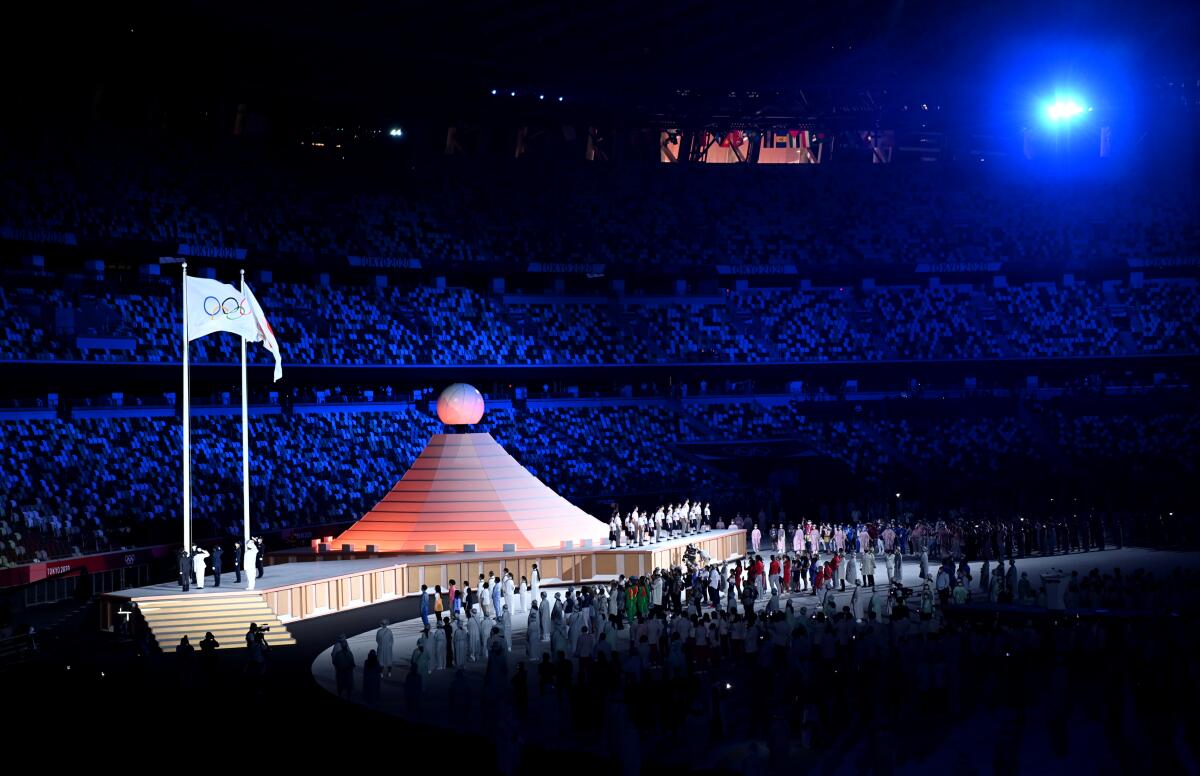
- Share via
TOKYO — When there should have been cheers Friday night as athletes marched in for the opening ceremony of the Tokyo Olympics there instead was an eerie silence in a cavernous stadium that was closed to spectators because of the COVID-driven state of emergency that still grips most of Japan.
When there should have been silence during solemn moments of remembrance, there was instead the cries of angry, insistent protesters who had gathered in the streets outside the Olympic Stadium to demand that these Games be stopped before they could officially start.
These Games began like no other, with empty seats bathed in a ghostly pale light and with the traditional athletes’ parade dramatically reduced in size because COVID regulations limit how much time participants can spend here and how closely they can mingle. These Games will be like no other. They’ve had the very life sucked out of them, making them less a joyride than a made-for-TV event that will be played out against the background of rising COVID numbers in Japan and athletes bound by restrictions against chanting, high-fiving or embracing one another to celebrate a victory or offer consolation in defeat. No fans, no family allowed.
The Olympics began with an occasionally somber opening ceremony acknowledging the ravages of COVID-19 that forced this global sports event to be postponed for a year.
The theme of one segment of Friday’s ceremony was “United by Emotion.” Unfortunately, in these circumstances, the overriding emotion is fear instead of the joy and promise that are at the heart of why the Olympics have mattered to so many people for so long. The announcement of the revised Olympic motto fell flat, too. The new version added a final word, changing it to “Faster, Higher, Stronger — Together.” Here, being too close together is a no-no that can lead to expulsion.
The ceremony was subdued compared with some that have come before it, a deliberate and appropriate choice of tone. Too many lives have been lost or disrupted to indulge in gaudy, over-the-top excess. Too much can still go wrong in the coming weeks to have set this up as a big party. There were the usual salutes to the host nation’s history, a tribute to traditional Japanese woodworking in the form of wooden Olympic rings that were carried onto the field, and lighthearted moments when a trio of actors dressed as the pictograms that represent each sport contorted themselves into live-action figures. They would fit nicely into the Blue Man Group.
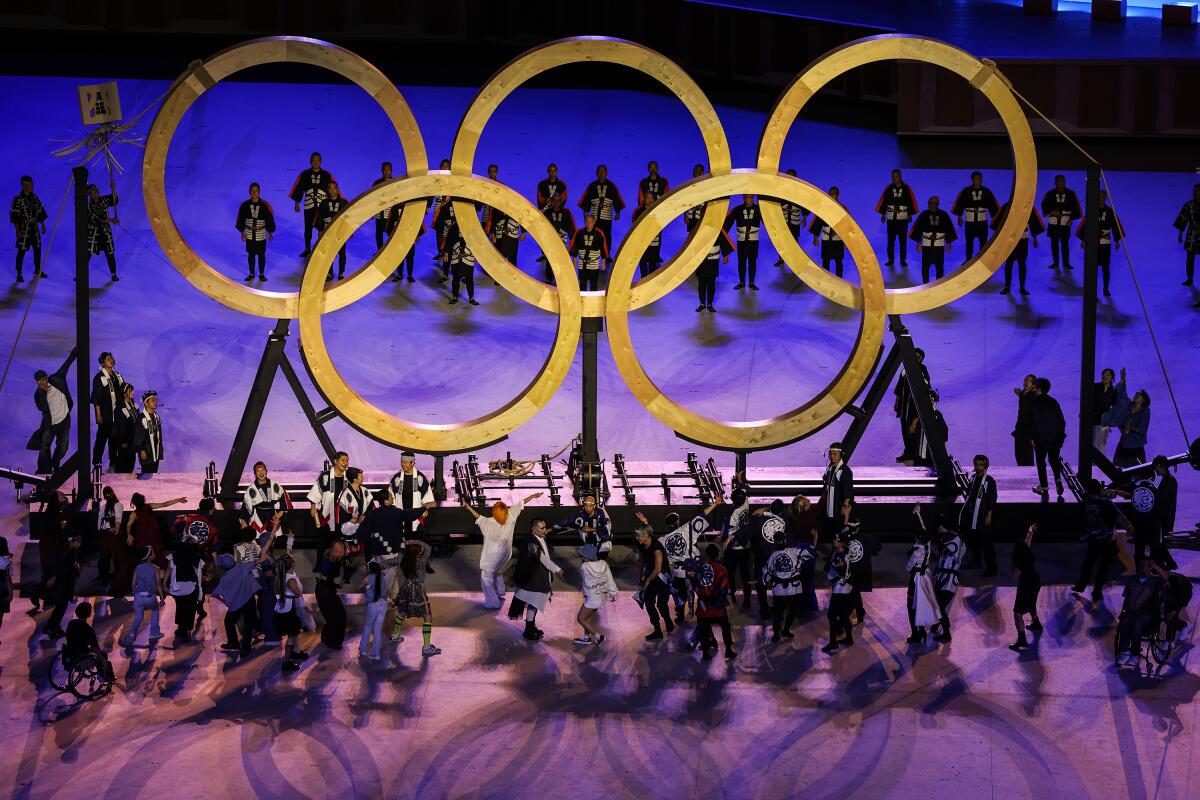
Among the dignitaries introduced was Japanese Emperor Naruhito. Beside him sat Thomas Bach, president of the International Olympic Committee. Bach isn’t an emperor but acted like one, imperiously pushing for these Games to take place because the IOC would have lost something like $4 billion in broadcast revenues if the Olympics had been canceled after being delayed a year.
Bach didn’t care that polls consistently showed the people of Japan didn’t want these Games to take place because they rightly feared that an influx of athletes, officials and media might worsen the country’s slow-to-unroll battle against COVID. This became about what the IOC wanted and not what Tokyo or Japan wanted. Future Olympic hosts — and there are so few now that Brisbane, Australia, was the only serious bidder for the 2032 Summer Games — would be smart to carefully read the fine print in the host city agreements they must sign. Why give up control of your city to the IOC and risk financial ruin?
The athletes who marched on Friday did their best to manufacture a sense of excitement, and bless them for that. Members of Argentina’s delegation jumped up and down as they entered the stadium. The flag bearers for the Dominican Republic danced their way in. Some members of Ecuador’s delegation, outfitted in jackets with barber-pole stripes on the sleeves, took off their hats and waved to a crowd that wasn’t there. Gymnast Samir Ait Said of France, the 2024 Summer Games host country, did an exuberant backflip as he led his team. Former Lakers star Pau Gasol, representing his native Spain, filmed his team walking out to the field and took selfies. Many athletes waved small national flags as they walked, bringing a small semblance of normalcy to a distinctly abnormal situation.
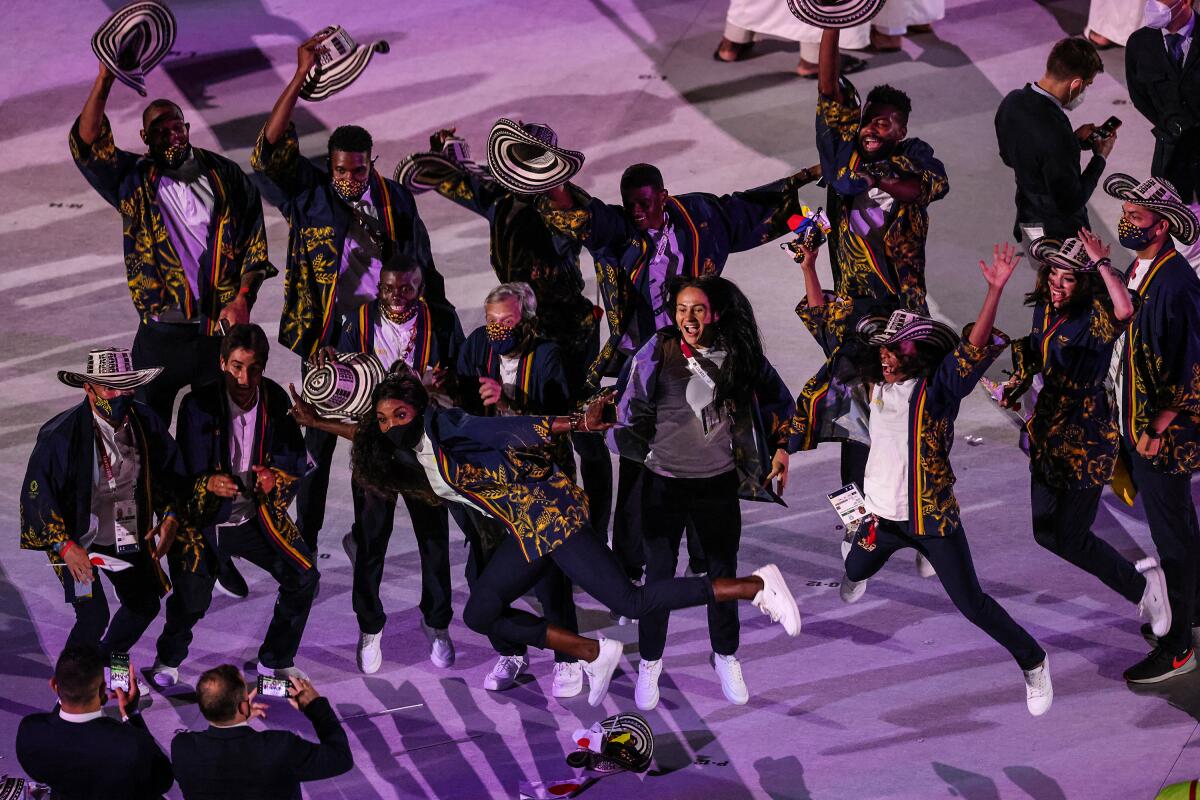
The absence of fans hurt most when Japan’s delegation entered the stadium last and didn’t get to hear the roars traditionally showered on the home team. That was the first of many deflating moments to come in the next two weeks, occasions when triumphs and extraordinary efforts that should be celebrated with joyful noise will be left to marinate in anxious silence.
One of the last moments of the ceremony was the best. Japan native Naomi Osaka, the first woman from her country to win the singles title at one of tennis’ four Grand Slam tournaments, lighted the Olympic cauldron, the traditional beacon that shines throughout the Games. It was a touching moment and rich in significance: Her mother, Tamaki, was shunned by her family for marrying a Black man, Haitian Leonard Francois, and the family left Japan when Naomi was 3 years old. For Osaka to be given a role of such honor embodied what Bach meant when he cited the “unifying power of sport” and the value of diversity in strengthening bonds both global and personal.
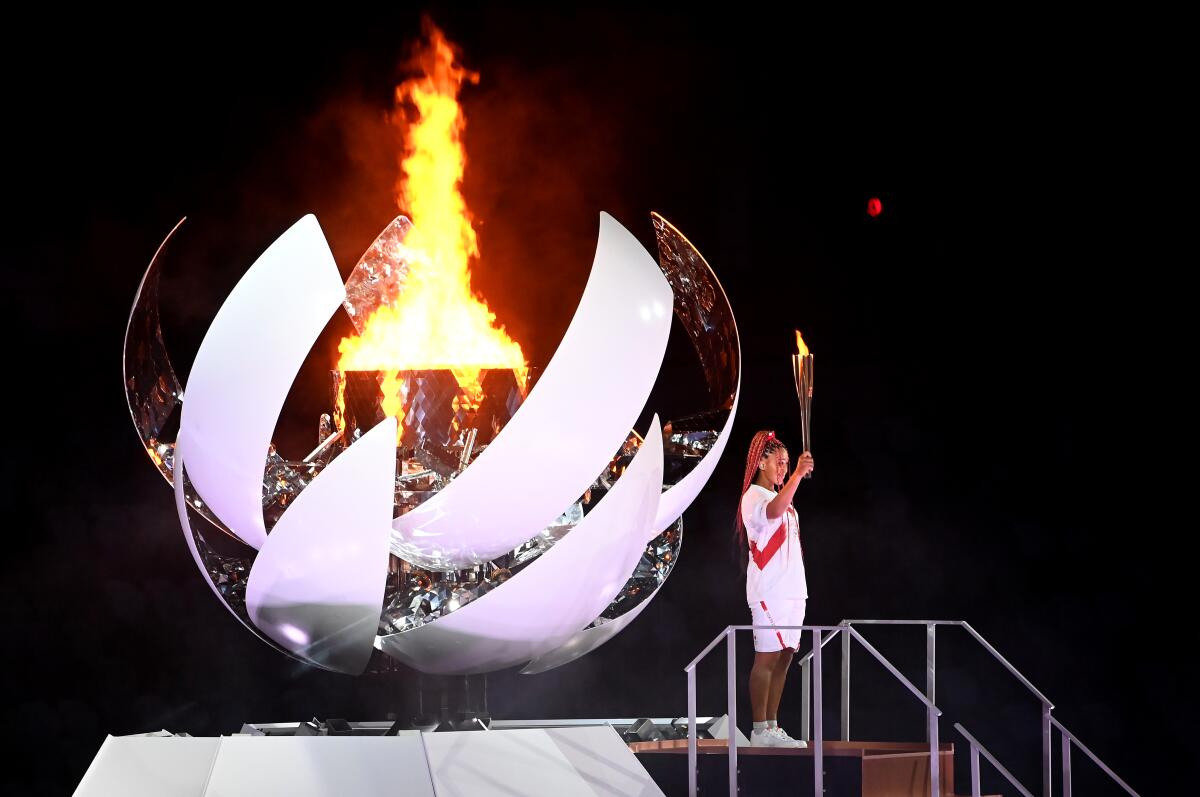
The traditional wish before the start of each Olympics is that there will be fair play, good sportsmanship and inspirational efforts by athletes. That hasn’t changed. “This feeling of togetherness — this is the light at the end of the dark tunnel,” Bach said. But we’re not out of that tunnel yet. For these Games, we also have to hope that no one becomes grievously ill or leaves the virus behind to sicken those who live here. That’s one emotion we can unite in supporting.
More to Read
Go beyond the scoreboard
Get the latest on L.A.'s teams in the daily Sports Report newsletter.
You may occasionally receive promotional content from the Los Angeles Times.

